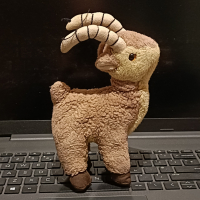La Vuelta 2024:- Stage 18: Vitoria Gasteiz – Maeztu-Parque Natural de Izki, 179.3km ***Spoilers***

Stage 18: Vitoria Gasteiz – Maeztu-Parque Natural de Izki, 179.3km
Thursday 5th September.
Start Time: 12-05BST.
Welcome to the Basque Country. The Vuelta settles down with a relatively straightforward profile on Stage 18. This might be the last chance for a sprint at the 2024 race. The race adds up to 179.3 kilometres and includes two intermediate climbs.
Vitoria-Gasteiz is a regular host of the Itzulia Basque Country. Year in year out, a stage starts in one of the greenest cities in Spain, while La Vuelta drops by every now and then also. Last year, the 2nd stage of the Tour de France even started in the town that’s reknown for its love for cycling.
Profile.
Map.
The Climb.
Final Kilometres.
What to Expect.
Probably one for the breakaway, as sprinter teams won't be too interested.
Vitoria-Gasteiz
Vitoria has already hosted 20 La Vuelta stage departures.
253,672 inhabitants.
Vitoria-Gasteiz is the capital of the Basque Autonomous Community in northern Spain. In the medieval quarter, the Gothic-style Santa María Cathedral features a sculpted facade and towering columns. The 17th-century Plaza de la Virgen Blanca has a monument to the 1813 Battle of Vitoria. The Church of San Miguel has a large, baroque altarpiece and houses a statue of the White Virgin, the city’s patron saint. Vitoria-Gasteiz was recognised as a European Green Capital in 2012. This award, which has only been given to two Spanish cities, recognises the environmental efforts made by large European cities.
Angulas
Known as ''the caviar of Northern Spain,'' angulas are baby eels, a Spanish seafood delicacy that's typically consumed with oil and garlic. They're also one of Spain's most expensive foods, reaching prices of up to 1,000 euros per kilo, which is pretty strange for some people who claim they don't taste of much at all.
Maeztu
Maeztu makes its debut hosting a La Vuelta finish-line.
804 inhabitants.
Maeztu, a small enclave in the South of Álava, encompasses the natural beauty of the Izki Natural Park. Surrounded by forests and mountains, it is a refuge for nature lovers. The park features a unique biodiversity and invites visitors to explore its various trails through a flora that is dominated by Pyrenean oak trees. Maeztu serves as an entrance to this natural paradise, where the connection with its surroundings and peaceful landscape come together to create a calm haven in the heart of the Basque Country.
Pincho de champiñon
Pincho de champiñon is a traditional Spanish appetizer or bar snack originating from Basque Country. These pinchos are usually made with a combination of small mushrooms, garlic, parsley, olive oil, white wine vinegar, paprika, and salt.
Comments
-
Please don't eat angulas (elvers - baby eels) they're critically endangered
Warning No formatter is installed for the format1 -
Has TdG made the break?
"If I was a 38 year old man, I definitely wouldn't be riding a bright yellow bike with Hello Kitty disc wheels, put it that way. What we're witnessing here is the world's most high profile mid-life crisis" Afx237vi Mon Jul 20, 2009 2:43 pm0 -
Looks like him
"If I was a 38 year old man, I definitely wouldn't be riding a bright yellow bike with Hello Kitty disc wheels, put it that way. What we're witnessing here is the world's most high profile mid-life crisis" Afx237vi Mon Jul 20, 2009 2:43 pm0 -
"If I was a 38 year old man, I definitely wouldn't be riding a bright yellow bike with Hello Kitty disc wheels, put it that way. What we're witnessing here is the world's most high profile mid-life crisis" Afx237vi Mon Jul 20, 2009 2:43 pm0
-
Inna group of a few dozen or so chasing 3 rider s Kung vacek.and schmid who have a min on them .. peloton 8 min
"If I was a 38 year old man, I definitely wouldn't be riding a bright yellow bike with Hello Kitty disc wheels, put it that way. What we're witnessing here is the world's most high profile mid-life crisis" Afx237vi Mon Jul 20, 2009 2:43 pm0 -
Vlasov getting the 10 minutes back that he gave away yesterday.
0 -
Amazingly, something's actually happening.
0 -
Landa, Kuss, Yates all dropped.
0 -
That's because I'm about to go into a meeting so am unable to watch.
0 -
Carlos taking a clear lead in the best Rodriguez classification; it's been close this year.
================================
Cake is just weakness entering the body1 -
TRex drop Cattaneo back from the lead group to help Landa - 10 minutes behind him - with 13km to go. Think he'd have had a chance of going clear and taking the stage today.
0 -
Not a popular decision with either Cattaneo or the commentary team.
0 -
Unless (& even if) he's got a rope I think he's wasting his time.
================================
Cake is just weakness entering the body0 -
Landa had been dropped at 44km to go - if they were going to drop him back to limit the damage it should have been at least half an hour earlier.
0 -
-
Nice win by Berrade - went with Kruijswijk at just the right time and was too strong.
0 -
I trust kern are legit
"If I was a 38 year old man, I definitely wouldn't be riding a bright yellow bike with Hello Kitty disc wheels, put it that way. What we're witnessing here is the world's most high profile mid-life crisis" Afx237vi Mon Jul 20, 2009 2:43 pm0 -
What: a bike team sponsored by a pharmaceutical company. Where's the worry?
================================
Cake is just weakness entering the body2 -
He did his job, they came in together. Landa lost 3:20 and drops to 10th, might have been 3:30 and 10th without Cattaneo.
1 -
Kelly saying Cattaneo is leaving anyway. Surprised he obeyed
0 -
He's got a contract to stay next year. He's old and experienced enough to know the score.
================================
Cake is just weakness entering the body0 -
That was a bit unexpected: a lower order GC day.
I enjoyed the bits that I saw. I am beginning to think half of we keyboard warriors would make better DS’s than some currently employed.
QS today trumped Ineos of yesterday, by some margin.
A bit like the boy who put his finger in the dyke trying to stop the Titanic from sinking!
"Science is a tool for cheaters". An anonymous French PE teacher.0 -
Ah ok, maybe I misheard or misunderstood the comment. I know pros do what they're paid for, but there must of been part of him thinking ....
0 -
Wrong thread
"If I was a 38 year old man, I definitely wouldn't be riding a bright yellow bike with Hello Kitty disc wheels, put it that way. What we're witnessing here is the world's most high profile mid-life crisis" Afx237vi Mon Jul 20, 2009 2:43 pm0
![stage-18-vuelta-24[1].jpg](https://forum.bikeradar.com/uploads/3AF90LNE138V/stage-18-vuelta-24-5b1-5d.jpg)
![stage-18-route[1].jpg](https://forum.bikeradar.com/uploads/5XS871L7MCVU/stage-18-route-5b1-5d.jpg)
![stage-18-herrera[1].jpg](https://forum.bikeradar.com/uploads/IIUZ87BJT1LG/stage-18-herrera-5b1-5d.jpg)
![stage-18-profile-finale[1].jpg](https://forum.bikeradar.com/uploads/ONWC60SKK812/stage-18-profile-finale-5b1-5d.jpg)
![ab0cf5e3b1094f3ab9e0be1381ac8a3a[1].jpg](https://forum.bikeradar.com/uploads/QAE14QCJW7KI/ab0cf5e3b1094f3ab9e0be1381ac8a3a-5b1-5d.jpg)
![260913e480a748679a53a026508c9c00[1].jpg](https://forum.bikeradar.com/uploads/4JXI6S1DLLCF/260913e480a748679a53a026508c9c00-5b1-5d.jpg)





